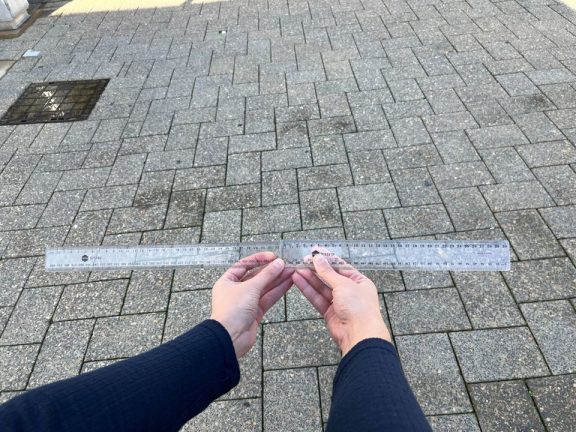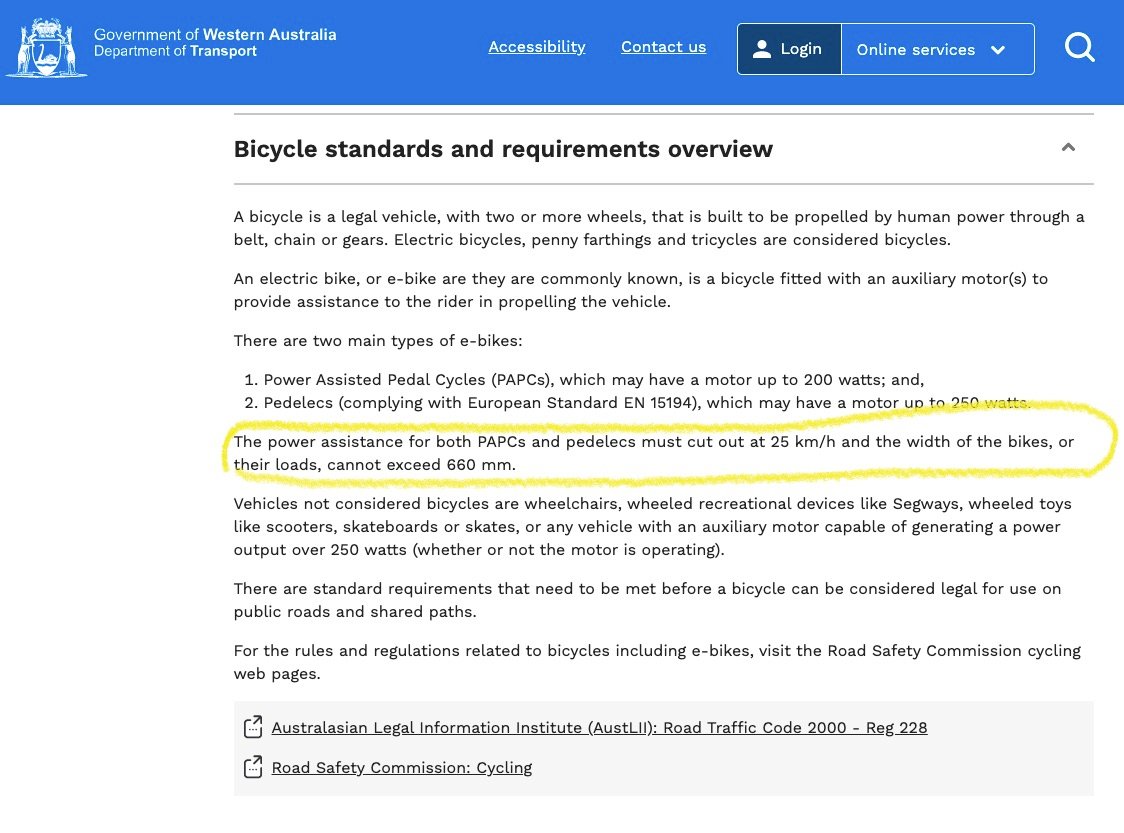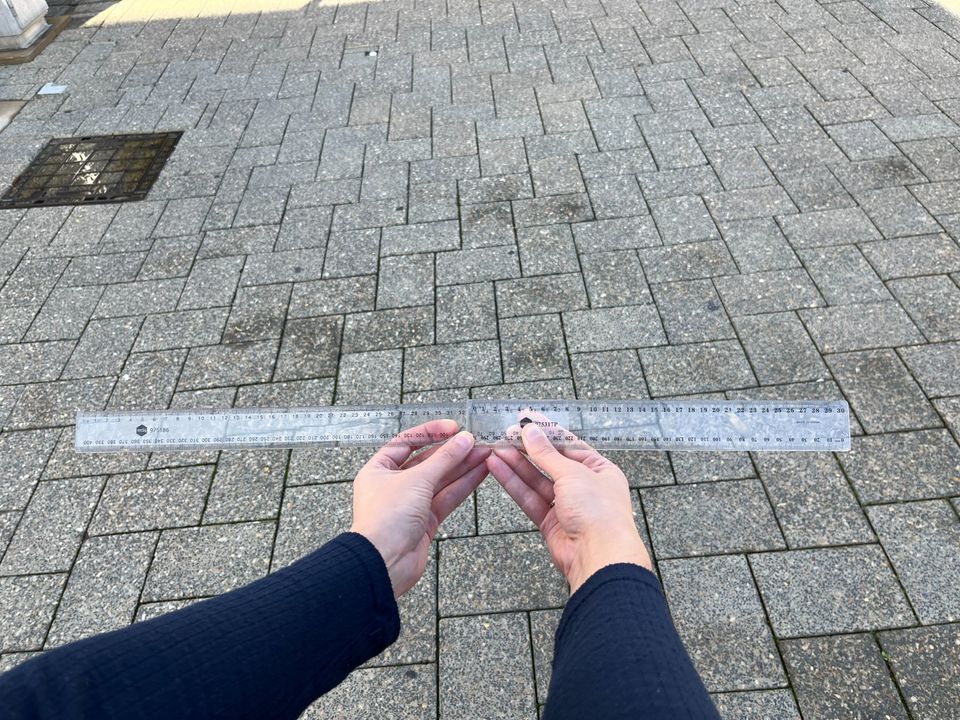
A Win for the NDIS Community and Biking in General
20 June 2022
This is a long one, but if you ride a bike, care about someone who rides a bike, or are interested in a totally bizarre situation that I’ve been working on for months, READ
Nearly a year ago my office was contacted by a constituent who works in the bike industry. They told us that they were frequently forced to turn away disabled clients who wanted to purchase an electric tricycle with their NDIS funding because the vast majority of Australian tricycles were considered unlawful under WA’s bicycle regulations.
Yes, you read that correctly: WA’s bicycle laws make most e-trikes illegal. What exactly do I mean illegal, you ask? Well, WA has an archaic rule hidden deep in our bicycle regulations that says no bike or its load can be wider than 66cm (see photo ).
).
66 CENTIMETRES! That’s just a smidge wider than two rulers (see 2nd photo), the width of a standard pillow, or a bit longer than two pieces of A4 paper. Seriously, I would encourage you to get out a tape measure and see just how narrow 66cm is.
This might sound like a boring detail to most, but the implication of this is HUGE. The list of bicycles that exceed 66cm include the following:
Under these archaic regulations, all of those categories of bikes would be considered illegal. Of course most people have no idea this rule even exists, apparently not even the police, so we continue riding our mountain bikes and cargo bikes as usual.
But because the NDIS will only fund equipment that is compliant with the law, disabled Western Australians have been unable to use their NDIS funding to buy mobility tricycles. These tricycles are potentially game-changing for people with disabilities, enabling them to more easily move around and improve their quality of life.
This width rule is obviously a huge problem for disabled people, so I had been collaborating with cycling organisations to assist them in lobbying the Minister to change these archaic regulations. The Department of Transport’s initial response was that they would review the regulations as part of a larger reform down the line, which of course is not acceptable for those disabled people missing out on mobility right now.
After unsuccessfully trying to achieve these changes via direct contact, we tried to use Parliamentary questions to get a positive outcome. While we received disappointing responses it seemed that these questions finally got some movement happening behind the scenes.
It was only last week when the media got hold of this story did the Minister agree to change the regulations to a width of 80cm. Pleasingly, one of the most popular tricycles in WA, the Scoobo, is 80cm wide so NDIS recipients will now have a wide range of choices of tricycles.
This was a good win showing what we can achieve with collaboration with key stakeholders and the strategic use of parliament and media levers.
There is still more work to do on this to align WA regulations with those in other states. State Government has also yet to officially announce the regulation change, so I will be watching closely to make sure they actually make the change with urgency, but ultimately this is a good win for our community and especially disabled Western Australians.




Discussion